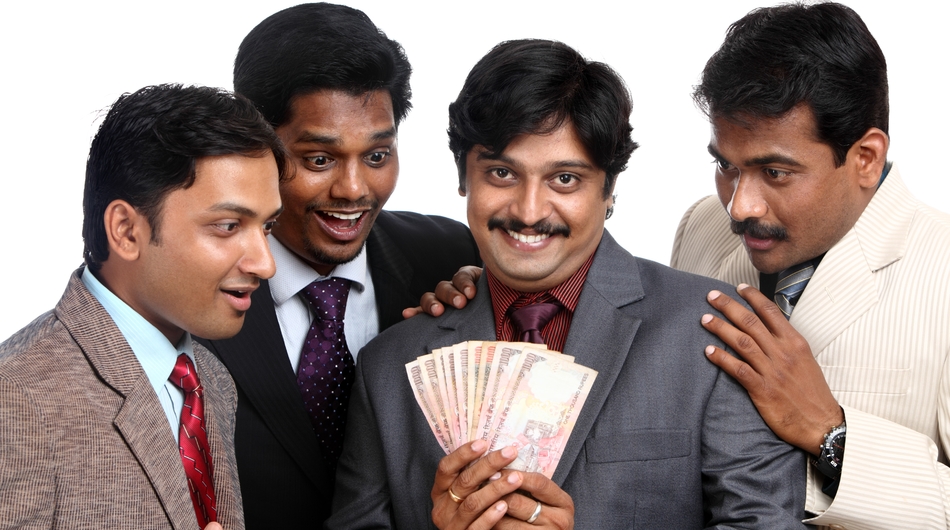
Photo credit : anandkrish16 / 123RF.
In a surprise move, Indian Prime Minister Narendra Modi on Tuesday announced that banknotes of 500 and 1,000 rupee denominations would be withdrawn from circulation at midnight, as the government cracks its whip against corruption and counterfeit currency.
500 and 1,000 rupee notes are the highest denominations available for the Indian currency.
Reuters reported that even the head of the country’s largest government-backed bank had not had much time to act on the government’s decision
“We have handled demonetisation earlier and will do so again. Tomorrow banks will remain closed in order to withdraw these notes from counters and ATMs. We will strive to restock ATMs at the earliest and make them operational,” chairman Arundhati Bhattacharya told the news wire late on Tuesday.
The government did not explain the reason decision being announced so suddenly, but the most plausible theory is that since the move is designed to lock out money that is unaccounted for or may have been gotten illegally, a heads-up about the change would have rendered the entire process fruitless.
But as one can imagine, the result of the shock announcement was chaos on the streets. Cash machines were either closed or seeing long lines, and the initial few hours resulted in general panic as citizens scurried online for details and debates.
2 min silence for those who opted for COD and will be receiving their ordered goods tomorrow
#BlackMoney #currencyban #currencyswitch
— jayd (@JaydeepKataria) November 8, 2016
Quote of the day.. America is counting votes, India is counting notes. #CurrencyBan #BlackMoney
— Biswatosh Sinha (@biswatosh) November 8, 2016
However, unexpected winners emerged from the cacophony – Indian startups. Top startup founders were quick to voice their support for the move, as this naturally means Indians will be nudged towards online payments and cashless transactions.
Keep the money digital. Superb step by our dear PM @narendramodi
From a bit inconvenience to incredible bold step ! #win #— Vijay Shekhar (@vijayshekhar) November 8, 2016
The biggest,the boldest & the most ambitious surgical strike by any government in the world. Hats off to our PM for removing ₹500/1000 notes
— Vijay Shekhar (@vijayshekhar) November 8, 2016
Let's build India into a super power by wiping out corruption and black money.
Let's win this together.
— Kunal Shah (@kunalb11) November 8, 2016
Cash on delivery to be a thing of the past very soon. Expect massive adoption of digital payment systems like @FreeCharge in place of cash!
— Kunal Bahl (@1kunalbahl) November 8, 2016
Landmark move by PM @narendramodi. This is our first major step towards encouraging a cashless economy. More power to a Digital India!
— Bhavish Aggarwal (@bhash) November 8, 2016
Why the cheer? Cash on delivery has long been a pain point for startups in the country. Because India is a cash economy, everyone including Amazon and Uber toed the line and introduced the practice of accepting cash payments to service the Indian customer.
However, offline payments take a longer time to reflect on the books, and are fraught with problems. Accepting cash requires hiring staff to manage it, and for ecommerce companies, cash also leads to a higher return rate (you pay only after your package is delivered, so it is easier to cancel an order, not accept it, cancel a cab ride without fear of penalty, etc).
As more Indians are forced to make cashless transactions, it will get easier for startups to convince them to pay online for their services.
Fintech startups lost no time in driving home that point.
We have got two words for you: Paytm Karo.
— Paytm (@Paytm) November 8, 2016
Great Move! Trash the Cash-Just Freecharge #Freechargenotcash
— FreeCharge (@FreeCharge) November 8, 2016
This post India just banned its biggest banknotes, and startups are rejoicing appeared first on Tech in Asia.
from Tech in Asia https://www.techinasia.com/india-abolishes-banknotes
via IFTTT

No comments:
Post a Comment